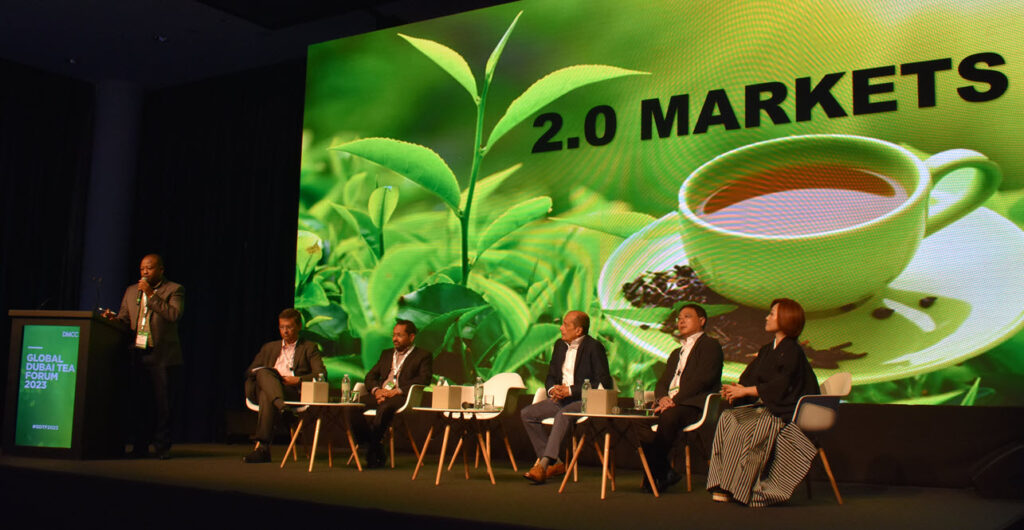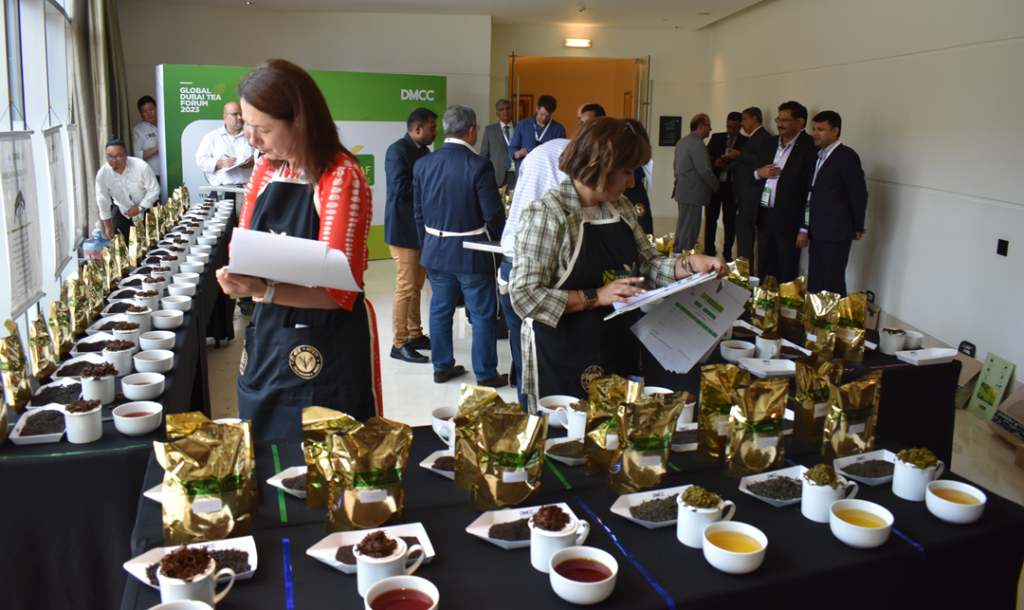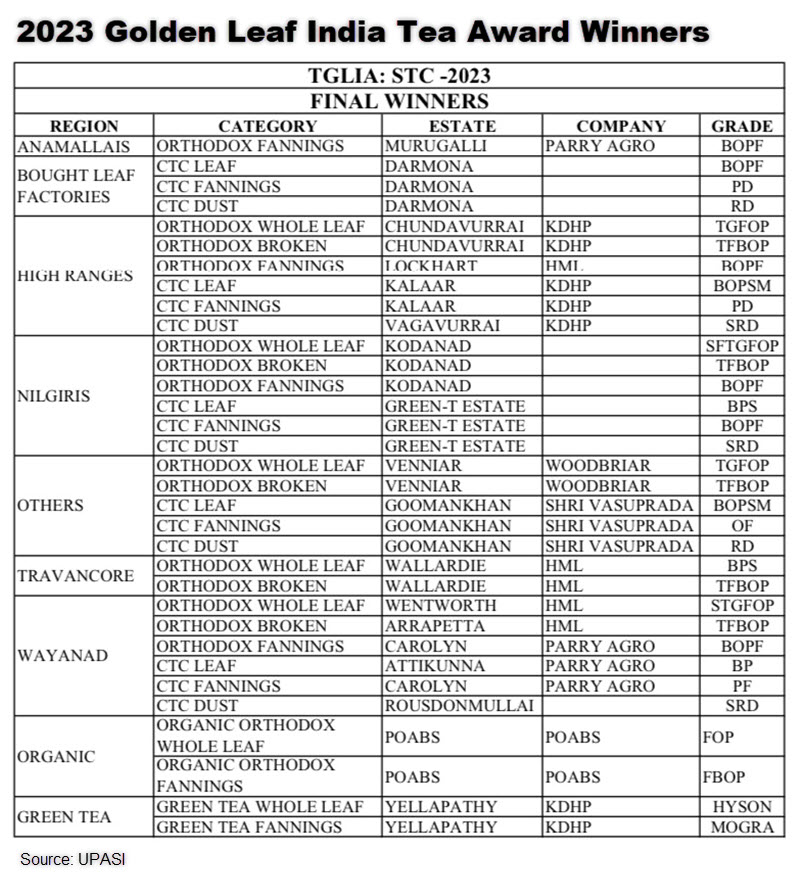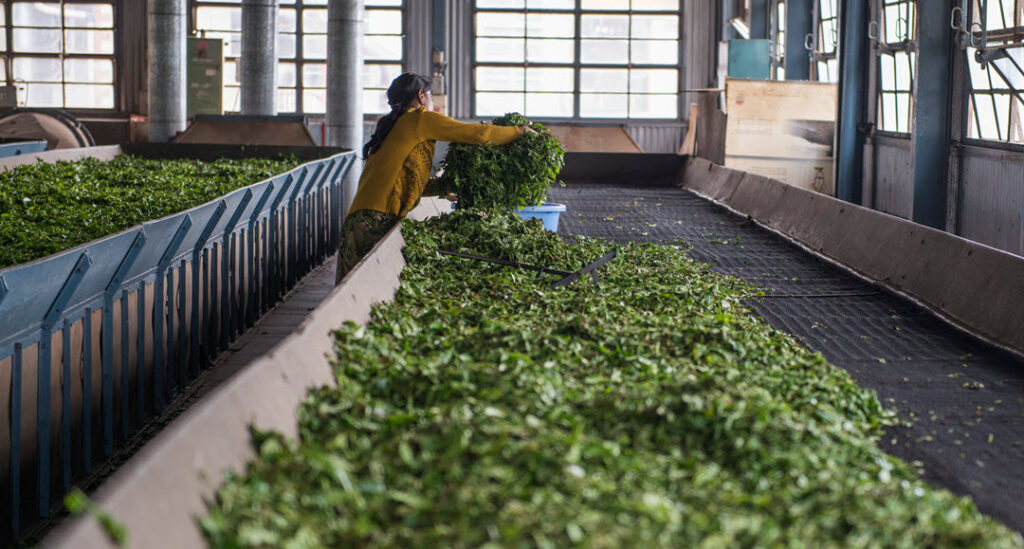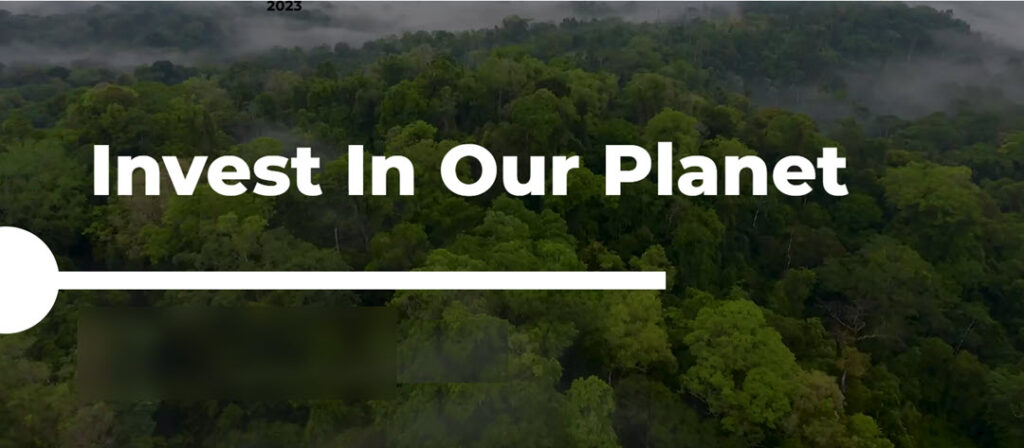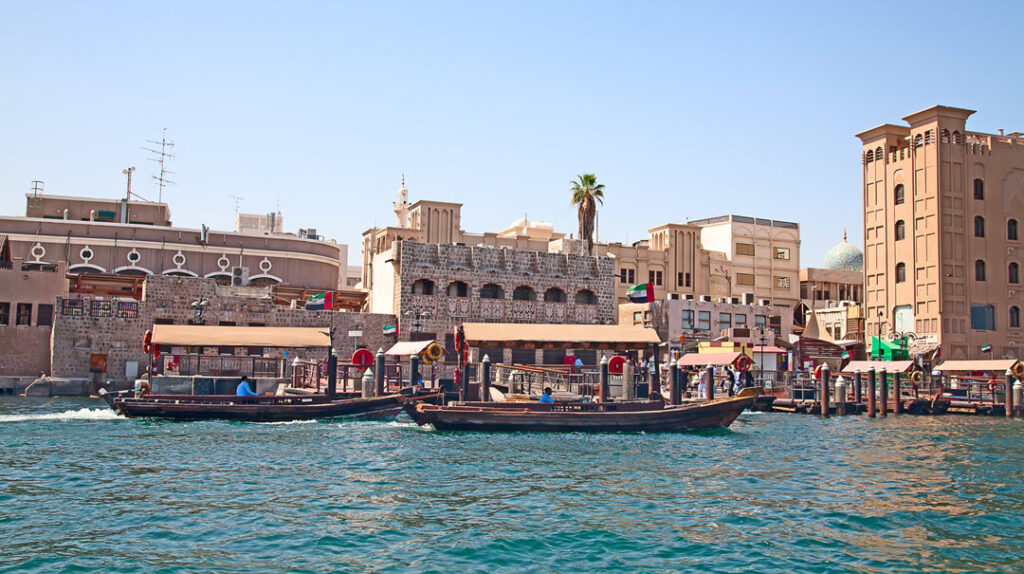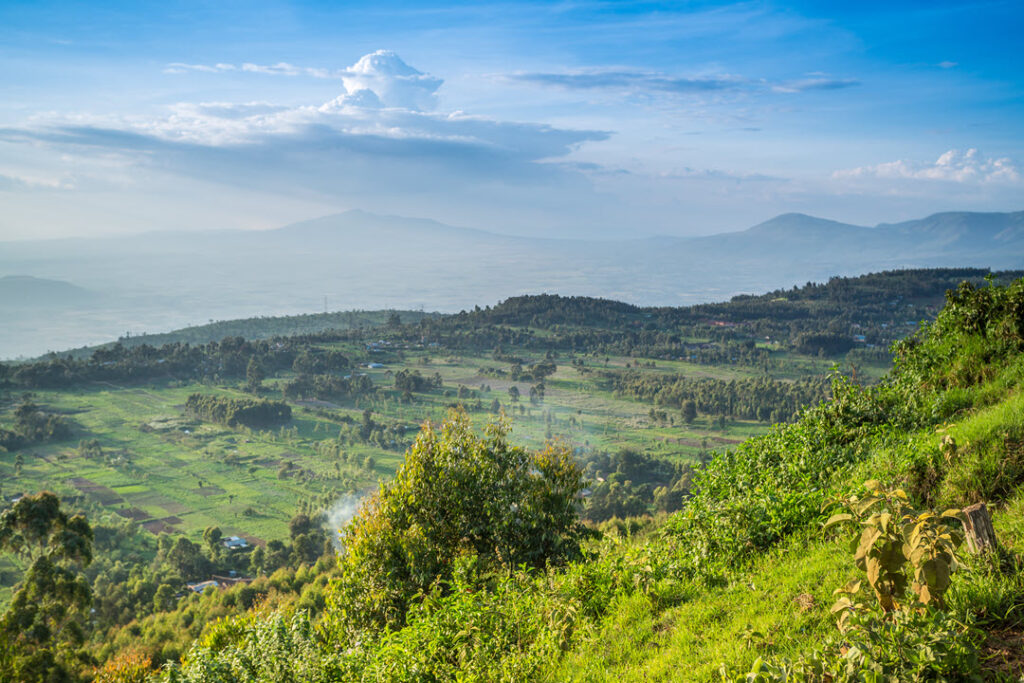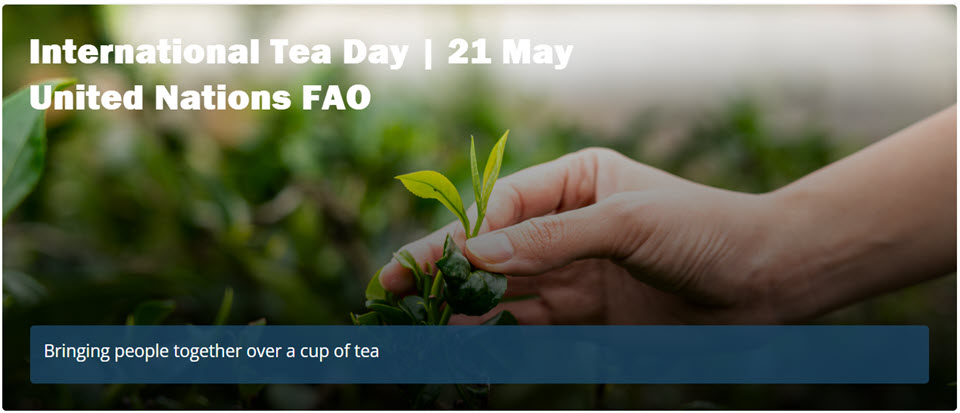
Tea News for the week ending May 19
| International Tea Day Makes a Big Splash
This year’s theme is Bringing People Together Over a Cup of Tea
| Receding La Niña Expected to Boost Summer Temps
| Catchy TV Campaign Promotes Lipton’s New Hard Tea
PLUS Tea Biz travels to Montréal, Quebec, to talk with Nadia de la Vega, director of tea sustainability and content at DAVIDsTEA, a company that fosters a spirit of POSITIVI-TEA which she describes as doing what’s right for both our local communities and global suppliers. Jessica Natale Woollard reports.
Hear the Headlines
Listen to Episode 117
International Tea Day Celebrations Expand Globally
Enthusiasm for the United Nations-designated International Tea Day is peaking this year as tea associations, governments, and brands join the May 21 tribute. The global tea industry increased production from 4.3 to 6.5 billion kilos from 2009-2019, enabling tea drinkers to enjoy 8.2 billion cups daily. A few of the many activities are linked below.
The United Nations designated International Tea Day to encourage sustainable production and consumption of tea. This year’s theme is Bringing People Together Over a Cup of Tea. The online and in-person event at the FAO Atrium and tea tasting in Flag Hall is Sunday, May 21, from 2 pm to 3:45 (Rome Time Zone) and will focus on smallholder tea producers, reaffirming the FAO’s commitment to helping overcome the challenges they face. Smallholders now produce 60% of the world’s tea, employing millions. The UN website offers several useful reports on how the industry can support the UN’s 2030 Agenda for Sustainable Development. Reports include International Tea Market: Market Situation, Prospects, and Emerging Issues; Tea Outlook 2027 and Emerging Trends in Tea Consumption.
Bringing People Together Over a Cup of Tea
By Dan Bolton
The United Nations designated International Tea Day to encourage sustainable production and consumption of tea. This year’s theme is Bringing People Together Over a Cup of Tea. The online and in-person event at the FAO Atrium and tea tasting in Flag Hall is Sunday, May 21, from 2 pm to 3:45 (Rome Time Zone) and will focus on smallholder tea producers, reaffirming the FAO’s commitment to help overcome the challenges they face. Smallholders now produce 60% of the world’s tea, employing millions. The UN website offers several useful reports on how the industry can support the UN’s 2030 Agenda for Sustainable Development. Reports include International Tea Market: Market Situation, Prospects, and Emerging Issues; Tea Outlook 2027 and Emerging Trends in Tea Consumption.

The European Speciality Tea Association announced a Zoom fundraiser to support women in tea. Promoted as the world’s biggest sipping event, the online gathering begins at 2 pm (British Summer Time) on Sunday, May 21.
“We plan to invite more than 1000 people worldwide to raise a cup in unison to celebrate this amazing beverage generating 1000 pounds sterling before and during the event to empower women in tea management. Women have been marginalized in the tea-making process and other management leadership roles within the tea industry, and we want to be a catalytic force to initiate change there. The hour-long event will be recorded for viewing on demand. Visit www.specialityteaeurope.com to register.
Line up
- Paola Cruz is a wellbeing influencer @practicewithpaola will talk about tea and wellbeing and how to infuse this in your life.
- Virginia Lovelace, author and tea scientist, will talk about improving your tea experience at home.
- Nepal tea collective sisters will talk about their life in tea.
- Muskan Khanna will talk about being one of the youngest women tea makers.
- Madelaine Au will talk about organizing a successful tea event in Oregon.
- Lucy (Mynt Mynt) Shwe from Mother’s Love Tea in Myanmar will speak about the uniqueness of Burmese tea culture.
- Bernadine Tay from Quinteassential is a Founding Director of the European Speciality Tea Association and will host and moderate the event.

ARGENTINA
Expo Té Argentina, in Posadas, Misiones, is a three-day event marking the 100th anniversary of commercial tea production. The event is May 25-27 and includes garden tours, a tea business conference, an exposition, and a tea fair. Learn more…
• Tea product business round: May 26 from 9 a.m. to 12 noon.
• Expo May 25 and 26 from 4 to 9 pm
• Tour with Producers of the enterprises: May 27
Download Conference Program: Day 1 | Day 2
BELGIUM
The Chinese Tea Culture Center in Antwerp will host a tea meditation and tea circle from 3-6 pm on Sunday, May 21. The Belgium Chinese Tea Culture Association is a non-governmental and not-for-profit culture association whose mission is to promote peace, harmony, and respect for the ECO nature and humanity in society through tea and tea serving.

CANADA
The Tea and Herbal Association of Canada will host its 4th annual Sofa Summit on Friday, May 19, from 8:30 am to 7:30 pm (Eastern Daylight Time). Join THAC President Shabnam Weber for 11 hours of conversations with tea experts, tea association representatives, and growers worldwide.

UNITED STATES
The inaugural Eugene Tea Festival will be held at the Farmer’s Market Pavilion in Eugene, Oregon, from 10 am to 4 pm (Pacific Daylight Time). Organizers invite participants to enjoy tea tastings, educational workshops, and a vibrant marketplace. Learn more…
Download Workshop Program | Sponsors
Listen to the interview

GERMANY
The Tea Day theme for this year’s German Tea & Herbal Infusions Association events is The Whole World in My Cup.
Teeverband board member Annemarie Leniger explained the ambitious goals of the industry: “Teas, in all their diversity, are not only part of a highly developed culture of enjoyment, but they are also becoming increasingly important as a valuable, natural food in this country. As a commodity, tea builds bridges between the continents, connects young and old tea fans, and should further promote economic developments in the countries of origin if German tea manufacturers have their way.”
European Tea Day organizers announced the inaugural June 2 celebration in Brussels with panel discussions describing the European tea market, new ways of attracting next-generation tea drinkers, and a tasting session. Learn more…

Receding La Niña to Boost Summer Temps
China is again experiencing record-breaking heat early in the crop cycle, impacting Yunnan and several other tea-growing provinces.
The country has experienced several heat waves since March, with Yunnan in Southwestern China recording 40 Celsius highs. Northern provinces Jinan and Tianjin are seeing temperatures soar to 37C (about 98 degrees Fahrenheit).
Kunming, the capital of Yunnan, had recorded only 8 millimeters of rain through April. According to state broadcaster CCTV, the province has seen only 35 millimeters of rain since the first of the year, the lowest total since record-keeping began.
In its latest assessment, the World Meteorological Organization, WMO predicts a strong likelihood of the El Niño weather pattern returning later this year. The current La Niña pattern has moderated temperatures over the past three years. WMO said the change would most likely lead to a new spike in global heating.
A study published in Nature Reviews Earth found that sea surface temperatures and variability increased after 1960 in the Southern Oscillation (ENSO). El Niño and La Niña events are more frequent and more extreme. The CSIRO study found that El Niño events have doubled, and strong La Niña increased nine-fold.
Lead researcher Wenju Cai said that “Global warming makes the impact of these events more extreme because a warmer atmosphere holds more water, so when it rains, it rains harder, and evaporation is higher, making droughts more severe, their onsets earlier and harder to get out,” he said.

Catchy TV Campaign Promotes Lipton Hard Iced Tea
This week, Lipton unveiled a trio of television and web commercials that state the obvious.
The top-selling non-alcoholic tea brand recently launched a fresh-brewed line with 5% ABV (alcohol by volume). The new hard tea is blended with a triple-filtered malt base in four versions, replicating its best-selling flavored iced tea.
The lineup includes lemon, peach, strawberry, and half & half flavors.
View commercial | Mechanical Bull | Oil Painter
According to Zion Market Research, the hard tea segment pioneered in 2001 by Boston Beer’s Twisted Tea was valued at $20 billion last year. Zion projects revenue will surpass $30 billion by 2030, growing at a combined annual rate of 11.9%.
Europe is expected to register the highest growth rate through 2030, followed by the Asia-Pacific region.
The television commercials, created by Founders Agency, depict situations in which actors are caught in humor, such as a guest who arrives in a swimsuit and fins for a “pool” party at a billiard room. When given a can of the new tea, the actors exclaim, “Obviously!”
Brand director Lisa Texido writes, “We created the recipe to make sure that the smooth, balanced flavor people love about Lipton iced tea came through. People will be surprised that a hard iced tea can be this delicious – a must-try.”
The tea is available in 12-packs of 12oz cans and 24oz single serve. Competitors, including Twisted, sell for $15-$18 for a 12-pack, $3 per 24oz can. Online prices were $18 for the Lipton 12-pack. A 12-pack of non-alcoholic Lipton Iced Tea sells for around $7, about 50-60 cents per can.

FEATURES

Sustainability is a Long-Term Commitment, Not a Campaign or Promotion
By Jessica Natale Woollard
Cheerful packaging and bright aqua for a signature color have made DAVIDsTEA one of Canada’s most recognizable tea brands. Founded in 2008, DAVIDsTEA expanded to become Canada’s largest specialty tea boutique, offering over a hundred teas and blends. The company made tea accessible, attracting a new generation of tea drinkers. Pre-pandemic, it operated 240 retail locations in Canada and the US but today focuses on e-commerce and wholesale. From day one, DAVIDsTEA has been sustainably oriented. It’s in the company’s DNA, says Nadia de la Vega, DAVIDsTEA’s director of tea sustainability and content. Nadia joins us on the podcast to discuss sustainability in the tea industry and how mindfulness and fun can go hand in hand. “Sustainability is not a campaign,” says de la Vega. “When you’re doing sustainability work, you are not doing a sale, and you’re not doing a promotion. This is a long-term commitment to your product and the people that provide the product you consume and love.”
Listen to the Interview
Share this episode with your friends in tea.
Signup to receive Tea Biz weekly in your inbox.

